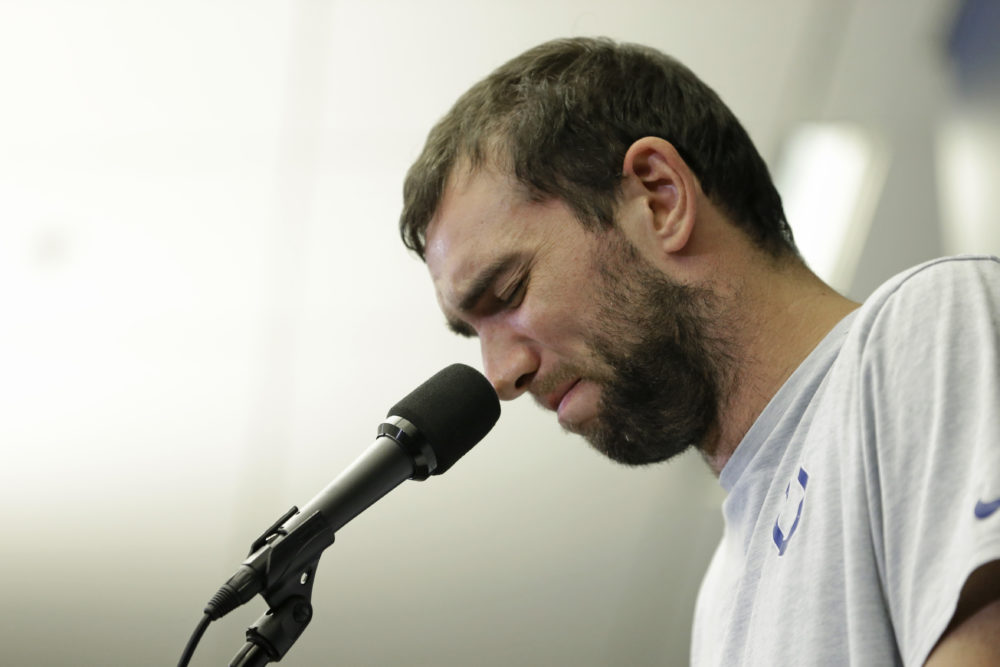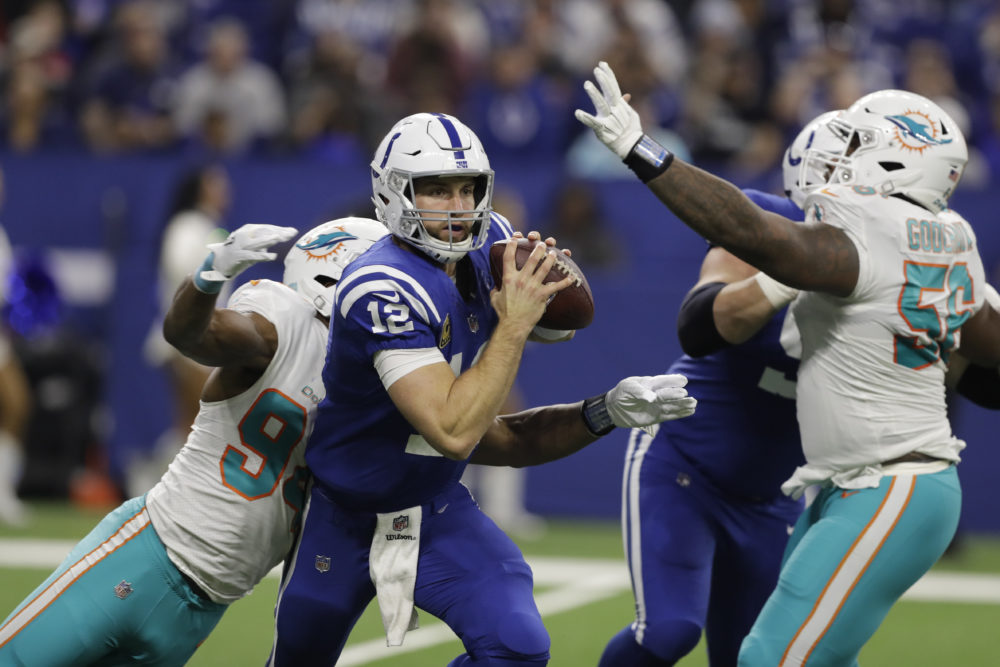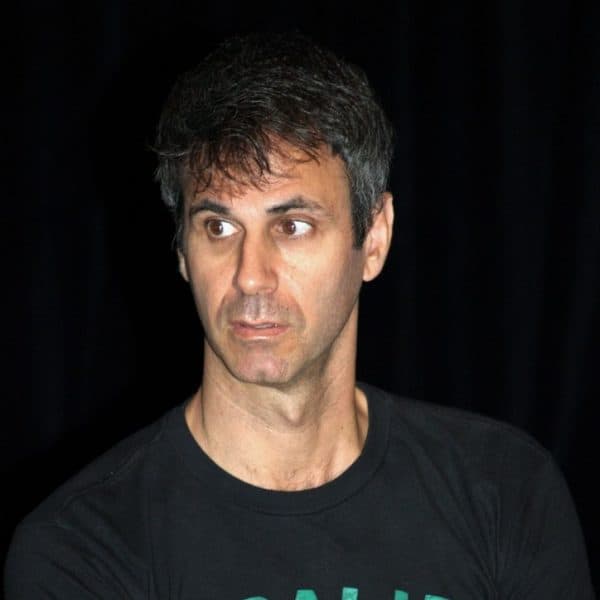Advertisement
Commentary
Andrew Luck And Our Mangled Sense Of Heroism

Andrew Luck, one of the NFL’s best quarterbacks, “stunned the football world” by retiring on Saturday.
In any rational world, of course, Luck’s decision would have been inevitable, given the damage his body absorbed over the last decade, which included at least one grade-one concussion, a lacerated kidney that caused him to urinate blood, broken ribs, a torn labrum and multiple leg injuries.
In the world of the football industrial complex, this kind of human wreckage is not just accepted, but applauded. The highest compliment bestowed on any football player is that “he plays through pain.”
Consider that the NFL’s own actuaries admitted five years ago, that up to 30% of former players would wind up with chronic traumatic encephalopathy (CTE), a degenerative brain disease that results from the thousands of sub-concussive events that players absorb in the course of their work.
This admission, it should be noted, came in response to a lawsuit filed by 5,000 former players, claiming the league hid these dangers from its own players.
Just try to imagine any other American workplace where it would be acceptable for 30% of the employees to sustain permanent brain damage. Or 20%. Or 10%.
So, of course, the NFL tried to cover up these risks.
When someone as talented as Luck retires, citing injuries, the league’s code of silence gets shattered. But all you have to do is read the memoirs of any retired player — Nate Jackson’s "Slow Getting Up" is a great one — to know that football players live in a constant state of pain.
Patriots fans, in particular, might want to recall the sage of former star linebacker Ted Johnson, who retired in 2005 after suffering multiple concussions that left him depressed and addicted to painkillers.
Johnson claims he was pressured by head coach Bill Belichick to engage in a full-contact practice while still recovering from a concussion. He did so, and sustained another concussion.

That is the so-called Patriot Way. And it’s precisely what makes Belichick the most effective NFL coach of all time. He pushes his players to sacrifice their own safety for the glory of the team.
It helps, of course, when you have a star quarterback who toes the company line. And Tom Brady does much more than that. He makes absurd and dangerously naïve statements about how “your body gets used to the hits. The brain understands the position that you’re putting your body into, and my brain is wired for contact.”
Brady even shilled for a sports drink that, he claimed (for some unspecific sum of money, presumably) helped him “feel comfortable that if I get a concussion [sic] I can recover faster and more fully.”
That, too, is the Patriot Way: Screw the medical data. Sell the product.
Andrew Luck’s decision to retire will be a hot story for another day or two. Then, like every other player who leaves the game — whether under his own power or on a stretcher — Luck will be forgotten, and fans will return their focus to the upcoming season.
Advertisement
That’s how the football industrial complex works. It’s a multibillion-dollar business predicated not on the Bradys or Lucks of this world, but on the peculiar morality of its most rabid fans.
Football will remain America’s most popular and profitable sport so long as there are people like the ones in Indianapolis, who booed Luck as he left the field for the last time. People, in other words, who experience their fandom as a form of victimization.
I say this as a guy in recovery from a pretty serious football addiction. I probably wouldn’t have booed Luck. But I would have been angry and disappointed that he chose to betray me and my team.
As a former fan, I can tell you that football is a beautiful and thrilling game, a highlight reel of physical grace and valor. It is also a business that mangles its heroes for our entertainment.
The real injury here isn’t just to Andrew Luck. It’s to our own sense of heroism.
